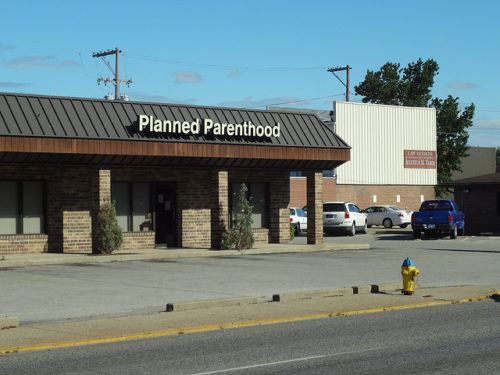
January 12, 2017; CNN “Politics” and WBUR-FM “Common Health”
This week, an anticipated 200,000 people will gather for the Women’s March on Washington to send a “send a bold message to our new government on their first day in office, and to the world, that women’s rights are human rights.” As the women’s rights movement presses on despite intensifying GOP attacks from every possible angle, it’s difficult to stop the mind from wandering to thoughts of what might transpire should the vote to defund Planned Parenthood at the federal level pass in Congress.
Even Planned Parenthood’s president, Cecile Richards, who has ardently remained front and center in the fight, has had to consider a contingency plan should the worst-case scenario play out. When asked in a recent interview with Rolling Stone about the organization’s response to a possible end to federal funding, Richards said that resorting to private philanthropy alone wouldn’t be an ideal substitute; instead, executing a state-by-state plan to address the unique needs of diverse patient populations would be key.
“Some of our states have been shut out of programs for a long, long time, and they’re equipped in a different way than in states where they currently see tens of thousands of Medicaid patients,” Richards explained. “We’ll be working at the state levels with governors and legislatures to make sure that patients get care.”
And the GOP’s proposed plan for those patients who currently rely on their local Planned Parenthood clinic for alternative care? According to U.S. House Speaker Paul Ryan, it’s as simple as redirecting funding and people to community health centers.
“We believe that this [care] can better be done by putting that money in federal community health centers,” Ryan told an audience member during a town hall event last week. “They’re vastly bigger in network, there are so many more of them, and they provide these kinds of services without all the controversy surrounding this issue.”
Unfortunately, Ryan’s proposal is impractical and, as was pointed out in this recent piece on Bustle, the rationale behind his suggestion in fact contradicts the Patients’ Choice Act outlined on his website.
Sign up for our free newsletters
Subscribe to NPQ's newsletters to have our top stories delivered directly to your inbox.
By signing up, you agree to our privacy policy and terms of use, and to receive messages from NPQ and our partners.
The effects of health legislation already seen in certain states, like Richards’ own home of Texas, dismally foreshadow the potential nationwide fallout of a GOP-led obstruction of access to contraception and safe and legal abortion, among other critical health services. In Massachusetts, for example, where abortions and teen pregnancies are currently at their lowest rate, an estimated 10,000 patients are at risk of losing care through the state’s MassHealth Medicaid program.
Although the GOP contends that community health centers will be viable replacements for Planned Parenthood clinics, Dr. Jennifer Childs-Roshak, president and CEO of the Planned Parenthood League of Massachusetts, explains that finding a different provider won’t be so easy:
The reality is, even here in Massachusetts, 40 percent of the towns have little or reduced access to primary care, and primary care means pap smears, STI testing, birth control, that’s very much a primary care opportunity. So for patients even in Massachusetts, where we think we’ve got services everywhere, it really becomes a burden.
Defunding Planned Parenthood on a national scale stands to not only negatively impact those who depend on the organization for health care services, but apparently families and at-risk children who turn to social service programs for other needs as well.
Iowa’s governor, Terry Branstad, has recommended that the state transfer money from a social services block grant, which supports underserved children and families, to a state-run program that allocates dollars toward organizations that do not perform abortions. Amy McCoy, a spokesperson for the Iowa Department of Human Services, confirmed that the reallocated dollars would in effect reduce funding for “preventative programs that reduce the chance of children entering welfare and the juvenile justice system.”
As Planned Parenthood clinics across the country rally to protect the organization’s federal funding stream, proponents of women’s health care are holding out hope that the GOP’s scheme to defund the nonprofit might not be as easy to enact as originally thought. Until this battle comes to a head, the organization will continue to lean on the millions of patients who depend on its services each year, asking them to let their elected officials know that defunding Planned Parenthood is something they vehemently oppose.—Lindsay Walker













